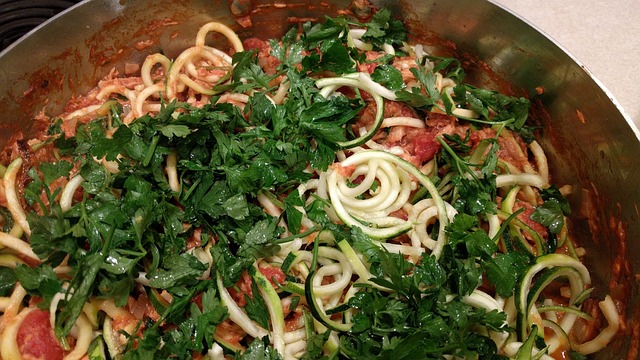The keto diet, also known as the ketogenic diet, is a high-fat, low-carb diet that has gained popularity in recent years as a weight loss and body transformation strategy. The diet is based on the idea that by significantly reducing carbohydrate intake and increasing fat intake, the body enters a state of ketosis where it begins burning fat for fuel instead of carbohydrates. This process can lead to weight loss and body change, as well as potential health benefits such as improved blood sugar control and reduced risk of certain diseases.
How does the keto diet work
The human body is designed to use carbohydrates as its primary source of energy. When we eat carbohydrates, the body breaks them down into glucose, which our cells then use for energy. However, when carbohydrate intake is restricted, the body begins burning fat for energy instead. This process is known as ketosis, and is key to the effectiveness of the keto diet.
During ketosis, the body breaks down fats into molecules called ketones, which cells can use for energy. When the body burns its fat stores, weight loss and body transformation can occur. The keto diet is often used for weight loss and body transformation because it allows the body to tap into its fat stores for energy, rather than relying on carbohydrates.
Starting the Keto Diet:
1. Limit your daily carbohydrate and protein intake: A key aspect of the keto diet is to limit your carbohydrate intake to 20-50 grams per day, while increasing your fat intake to make up the majority of your daily calories. It is also important to consume adequate protein to support muscle mass and overall health.
2. Plan your meals: The keto diet can be difficult to follow if you are not prepared with a meal and snack plan. Make a list of low-carb, high-fat foods that you enjoy and incorporate them into your meals and snacks. Some examples of low-carb, high-fat foods include avocados, olive oil, coconut oil, nuts, seeds, eggs, and fatty cuts of meat.
3. Monitor your progress: To determine if the keto diet is right for you, it is important to monitor your progress. This can include tracking your weight, measurements, and other signs of progress such as energy levels and general well-being.
4. Ask for support: Starting a new diet can be stressful, and it may be helpful to seek support from friends, family, or a health care professional. You may also find it helpful to join a keto-specific support group or online community for guidance and motivation.
Benefits of the keto diet
1. One of the main benefits of the keto diet is improved blood sugar control. By significantly reducing carbohydrate intake and increasing fat intake, the keto diet can help lower blood sugar levels and improve insulin sensitivity in people with type 2 diabetes. This can be especially beneficial for individuals who are at risk of developing serious complications related to high blood sugar levels, such as heart disease and nerve damage.
In addition to its effects on blood sugar control, the keto diet may also have the ability to reduce the risk of certain diseases. Some research suggests that the keto diet may be beneficial for reducing the risk of heart disease, as it can help lower levels of bad LDL cholesterol and increase levels of good HDL cholesterol. Other research has also indicated that the keto diet may have the potential to reduce the risk of certain types of cancer, although more research is needed to fully understand the relationship between diet and cancer risk.
2. Another benefit of the keto diet is its ability to promote weight loss and body transformation. By allowing the body to tap into fat stores for energy instead of relying on carbohydrates, the keto diet can help individuals shed excess weight and achieve their weight loss goals. Additionally, the high-fat nature of the diet can help reduce appetite and increase feelings of fullness, which may contribute to weight loss.
It is important to note that the keto diet is not suitable for everyone, and it is important to speak with a healthcare professional before starting the diet. The keto diet may not be suitable for individuals with certain health conditions or for pregnant or breastfeeding women.
Overall, the keto diet has a number of potential health benefits, including improved blood sugar control, reduced risk of certain diseases, and weight loss. While the diet may not be right for everyone, it can be a useful tool for those looking to improve their health and achieve their weight loss goals.
Simple low-carb snack options:
1. Boiled eggs.
2. Avocado with salt and pepper.
3. Slices or cubes of cheese.
4. Nuts and seeds (such as almonds, pumpkin seeds, and sunflower seeds).
5. (Beef or turkey).
6. Olives.
7. Coconut flakes.
8. Dark chocolate (in moderation).
That's enough for today. If you feel there is something useful, please share it with your loved ones, and don't forget to reveal your thoughts in the comment box. Or if you have any great ideas or any questions, don't forget to share by commenting. Until then, be happy, keep smiling, keep asking questions, and please keep reading my articles. See you in the next article.

Comments
Post a Comment